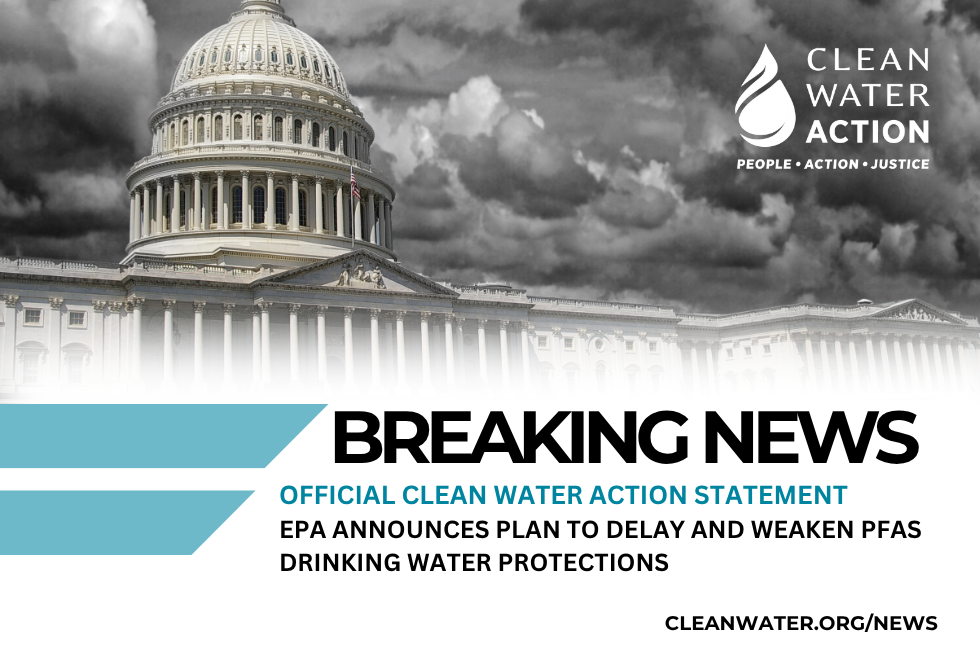
Washington DC - Today, the U.S. Environmental Protection Agency (EPA) announced its intention to reconsider the April 2024 health-based drinking water limits for four PFAS “forever” chemicals and to delay protections for two more.
“This retreat by the Trump administration flies in the face of overwhelming evidence that PFAS chemicals in drinking water pose numerous health risks,” said Clean Water Action President and CEO Jeff Carter. “With over 100 million people currently exposed to PFAS chemicals in their drinking water, EPA should be focused on getting these chemicals out of the environment and out of use rather than on reversing Safe Drinking Water Act limits."
PFAS (per-and poly-fluoroalkyl substances) are a class of human-made chemicals that are toxic even in very low concentrations. Because they are stain and oil resistant and repel water, PFAS have been widely used since the 1950s in many common consumer products, including carpets, clothing, cookware, cosmetics, and food packaging. These “forever chemicals” are highly persistent and mobile in the environment, which means they bioaccumulate and travel unchanged through streams, rivers, and other water bodies, including drinking water sources. PFAS are linked to serious health problems including damage to liver, thyroid, and pancreatic function, immune system harm, hormone disruption, high cholesterol, and cancer.
EPA announced that it will extend the Maximum Contaminant Level (MCL) compliance deadlines for PFOA and PFOS from 2029 to 2031. The agency will also rescind and reconsider the Hazardous Index-based regulatory approach currently in place for PFHxS, PFNA, HFPO-DA (GenX), and PFBS.
EPA also announced its intention to address PFAS chemicals holistically and to hold polluters accountable through a suite of actions announced by Administrator Lee Zeldin in April. "Weakening health protections in drinking water does not hold polluters accountable and is not a holistic approach. EPA should leave Safe Drinking Water Act limits in place and act with unprecedented speed using all its authority to keep PFAS chemicals out of our water and the environment and to eliminate their use wherever possible,” said Clean Water Action’s National Campaigns Director, Lynn Thorp.
Clean Water Action’s state offices are working to reduce PFAS use in California, Connecticut, Maryland, Massachusetts, Minnesota, New Jersey, Pennsylvania and Rhode Island. Clean Water Action in Minnesota helped deliver a win in May 2023, when Governor Tim Walz signed the strongest PFAS reduction provisions in the country. This bill, known as Amara’s Law, bans some products containing PFAS in 2025 and all non-essential uses of PFAS chemicals by 2032. It also requires manufacturers selling products in Minnesota to disclose if PFAS chemicals are present. At the federal level, the organization will continue to push for aggressive federal action to keep PFAS chemicals out of the environment and curb their use.
###
Since our founding during the campaign to pass the landmark Clean Water Act in 1972, Clean Water Action has worked to win strong health and environmental protections by bringing issue expertise, solution-oriented thinking and people power to the table. Learn more at www.cleanwater.org.